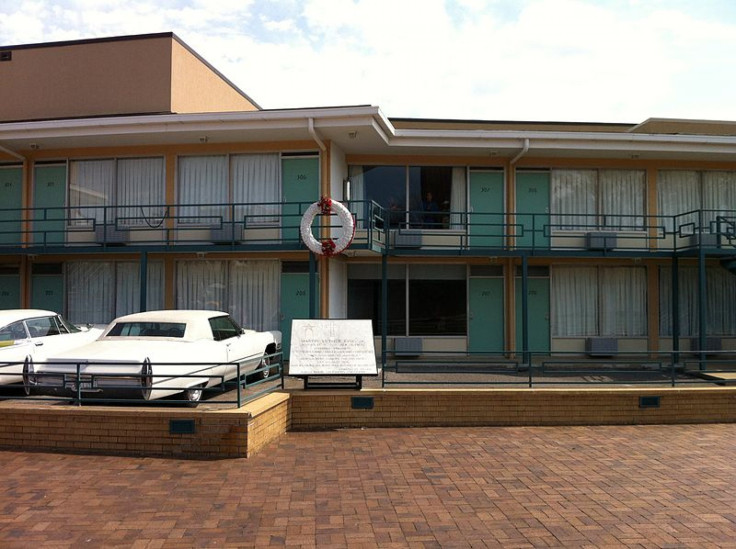Balcony Martin Luther King Jr. Was Standing On When Shot Opening To Public; MLK Balcony Has Unfinished Coffee

The balcony at the Lorraine Motel in Memphis, Tenn., where the Rev. Martin Luther King Jr. was standing when he was killed by an assassin’s bullet will be open to the public for the first time.
The National Civil Rights Museum was built around the Lorraine Motel, and people will be able to visit the balcony now that renovations are complete.
King was shot on April 4, 1968, while standing on the balcony with other civil-rights leaders, including the Rev. Jesse Jackson. King was preparing to lead a march of sanitation workers protesting low wages and unsafe working conditions before being hit in the neck by a bullet fired by James Earl Ray. The inspirational leader children now learn about in history class died in the hospital hours later.
Members of the public had previously been able to see the balcony, but were prohibited from standing on it, the Associated Press reported. The balcony will open Nov. 19 with a lift installed for disabled visitors, AP said. An annex with a replica of the boardinghouse where Ray was staying when he shot King will also be open to the public.
The room where King was staying, No. 306, has remained untouched in the almost 45 years since his death. Everything from a rotary phone to messy sheets on the bed to unfinished coffee still sit where they were then, according to Agence France-Presse via The Raw Story.
The assassination came five years after the famous march on Washington where King delivered his legendary “I Have a Dream” speech. He survived multiple previous attempts on his life, including the 1956 bombing of his home, according to the BBC.
After the fatal shooting of King, Jackson told the press about what he had witnessed. “He had just bent over," he said. "I reckon if he had not been standing up, he would have not been hit in the face.”
Lyndon Baines Johnson, then president of the U.S., told the country he was “shocked and saddened” by King’s death: “I ask every citizen to reject the blind violence that has taken Dr. King, who lived by nonviolence.”
Riots in more than 100 cities followed the assassination. Ray, a drifter with a criminal record, was arrested at London’s Heathrow Airport about two months later.
© Copyright IBTimes 2024. All rights reserved.











